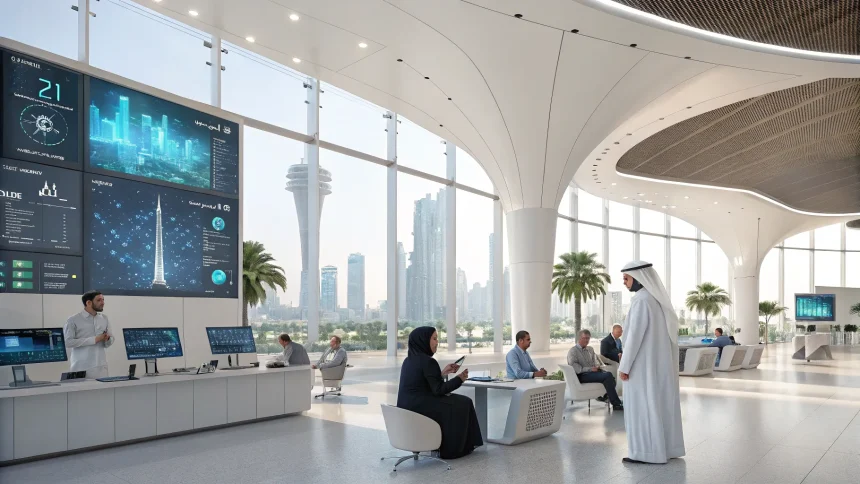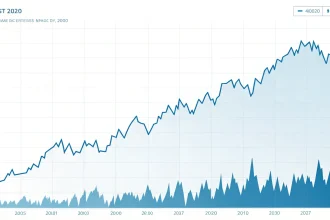Microsoft said Monday that its latest move in the Middle East forms part of a planned $15.2 billion investment in technology in the United Arab Emirates. The commitment signals a major bet on the Gulf state’s push to grow digital infrastructure and artificial intelligence. The company did not disclose full terms, but framed the plan as a multi-year effort tied to the country’s innovation goals.
The UAE has built a reputation as an early adopter of cloud services, data centers, and AI policy. The announcement comes as Abu Dhabi and Dubai compete to attract global tech firms and expand high-skilled jobs. It also follows several partnerships between U.S. tech companies and UAE-backed groups seeking faster progress in AI and digital services.
What Microsoft Says Is Coming
“Microsoft’s announcement Monday was part of the company’s planned $15.2 billion investment in technology in the UAE.”
The company presented the spending as a broad package rather than a single project. Such plans often cover data center capacity, cloud services for government and industry, cybersecurity upgrades, and training programs. While timelines were not detailed, big-ticket infrastructure typically rolls out over several years to match local demand and energy planning.
Why the UAE Is a Magnet for Tech Capital
The UAE has pursued a long-term shift from oil to advanced services, logistics, and digital industries. It launched AI strategies, encouraged public cloud adoption, and supported startup hubs like Hub71 in Abu Dhabi and DIFC Innovation Hub in Dubai. Microsoft opened Azure cloud regions in the UAE in 2019, helping government and banks keep data inside the country.
Officials have also emphasized data protection and responsible AI rules to attract global firms. That policy mix, along with stable regulation and capital access, has drawn new cloud zones, chip investment, and AI model work. The latest spending plan fits this track record, suggesting more capacity and services for both public and private sectors.
Potential Focus Areas
While Microsoft did not provide a detailed breakdown, investments of this size in the Gulf often include:
- New or expanded data centers to support AI training and large-scale cloud workloads.
- Developer and cybersecurity training to fill talent gaps.
- Sector-specific cloud tools for energy, finance, logistics, and government services.
- Support for local startups through credits, partnerships, and accelerator programs.
The UAE’s energy grid and growing clean power projects may also support high-density computing. That is a key factor for AI data centers, which require heavy electricity and cooling.
Economic and Industry Impact
Large cloud deployments can lift local suppliers, construction, and professional services. They often lead to follow-on spending by partners building software on top of new infrastructure. Banks and airlines in the UAE have already migrated workloads to the cloud, and a bigger footprint could speed that shift.
For government, more capacity can support digital IDs, health records, and e-services. For industry, it may lower latency, improve data residency options, and enable advanced analytics. The scale of the plan suggests wider access to AI tools, from copilots in office software to industry models tailored for the region.
Technology and Policy Considerations
As AI use grows, policymakers face questions on data privacy, model safety, and labor impacts. The UAE has positioned itself as pro-innovation while setting clear rules for cloud providers. Continued audits, security certifications, and local data controls will be central to any rollouts tied to critical infrastructure.
Analysts also point to supply constraints in AI chips and power. Those bottlenecks can slow deployment or reshape timelines. Partnerships with local utilities and global suppliers will be important to keep projects on track and manage environmental goals.
What to Watch Next
Key signals include specific site announcements, construction starts for data centers, and new training targets. Customers will look for service expansions in the UAE cloud regions and clearer plans for AI availability. Any joint programs with universities or public agencies would show where the investment is heading first.
The UAE’s broader strategy suggests a steady pipeline of digital projects. If Microsoft’s plan advances on schedule, it could anchor a new wave of AI and cloud adoption across the Gulf. For businesses and developers, the near-term focus is practical: lower costs, better performance, and skills that match the next phase of digital work.
For now, the headline is the scale. A $15.2 billion commitment, if delivered, would mark one of the largest single tech investments in the country. The next stage will be execution, transparency on timelines, and clear benefits for users across the public and private sectors.









